For startups, the journey from an idea to a marketable product is fraught with challenges, and perhaps none is as daunting as securing the initial capital. This crucial step is not just about gathering funds; it’s about validating your idea in the real world, attracting supporters, and laying the groundwork for future success.
While statistics like the $17.2 billion generated annually through crowdfunding in North America highlight its financial significance, the true value of crowdfunding lies deeper. It’s about connecting directly with those who believe in your vision, often leading to an average of $33,430 raised per successful campaign. This avenue is especially effective among the younger generation, who are not just contributing financially but are also often the first users and vocal supporters of new products and ideas.
Let’s embark on this journey to uncover the best crowdfunding platforms in 2024!
Criteria for Choosing the Best Crowdfunding Site
Here are the factors to consider:
- Type of Crowdfunding: Determine whether you need equity, reward, donation, or debt crowdfunding. Each type serves different purposes and suits different business models.
- Target Audience: Look for a platform that aligns with your project’s niche and audience. Some platforms cater specifically to tech innovations, creative arts, social causes, etc.
- Fees and Costs: Understand the fee structure, including platform fees and payment processing fees. These can vary significantly and impact your net funding.
- Success Rate: Research the platform’s track record. A higher success rate can indicate a supportive environment and effective reach.
- Platform Popularity and Reach: Consider the platform’s user base and reach. A larger audience can mean more potential backers for your campaign.
- Funding Model: Check if the platform offers all-or-nothing (you must meet your goal to receive any funds) or keep-what-you-raise models.
- Support and Resources: Evaluate the level of support and resources provided, such as campaign planning tools, promotional assistance, and customer service.
- User Experience: The platform should be user-friendly for both creators and backers, with a straightforward setup process and easy navigation.
11 Best Crowdfunding Sites for Startups in 2024
1. Kickstarter

Kickstarter has become synonymous with crowdfunding, especially for creative projects. It’s the go-to platform for artists, musicians, filmmakers, designers, and tech innovators. The platform is ideal for projects that have a clear goal, like producing an album or film or launching a new gadget.
Fees and Financials: charges a 5% fee on the total amount raised, along with payment processing fees that range between 3% and 5%.
Success Rate: Historically, Kickstarter boasts a success rate of around 37.44%. This rate is significant, considering the platform’s all-or-nothing funding model, where funds are only collected if the project reaches its funding goal.
Support and Resources: While Kickstarter provides a comprehensive FAQ section and guides (known as Kickstarter School), direct support can be limited. The platform encourages creators to build their community and leverage it for campaign success.
Pros: The major advantage of Kickstarter is its large, engaged audience and the credibility it lends to projects.
Cons: Its all-or-nothing model can be risky for startups, as failing to meet the funding goal means walking away with nothing.
2. Indiegogo
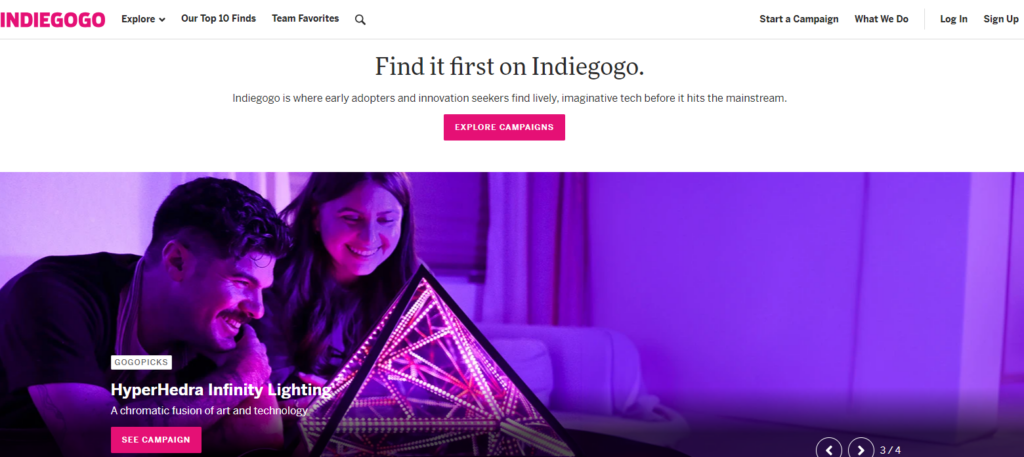
Supports a wide range of projects, from tech innovations to community arts. It’s particularly appealing for startups that are looking for a global audience and those that might not fit the typical mold for Kickstarter campaigns.
Fees and Financials: Charges a 5% platform fee, plus payment processing fees. However, it offers more flexibility with its funding models – fixed (all-or-nothing) and flexible (keep what you raise).
Success Rate: Its flexible funding option allows campaigners to keep whatever funds they raise, regardless of whether they meet their goal.
Support and Resources: Indiegogo stands out for its support level, offering direct email support, a comprehensive help center, and educational content like the Indiegogo Playbook and crowdfunding field guide.
Pros: The platform’s flexible funding option is a significant draw, reducing the risk for startups.
Cons: Projects may proceed without sufficient funds, potentially leading to challenges in project fulfillment.
3. SeedInvest
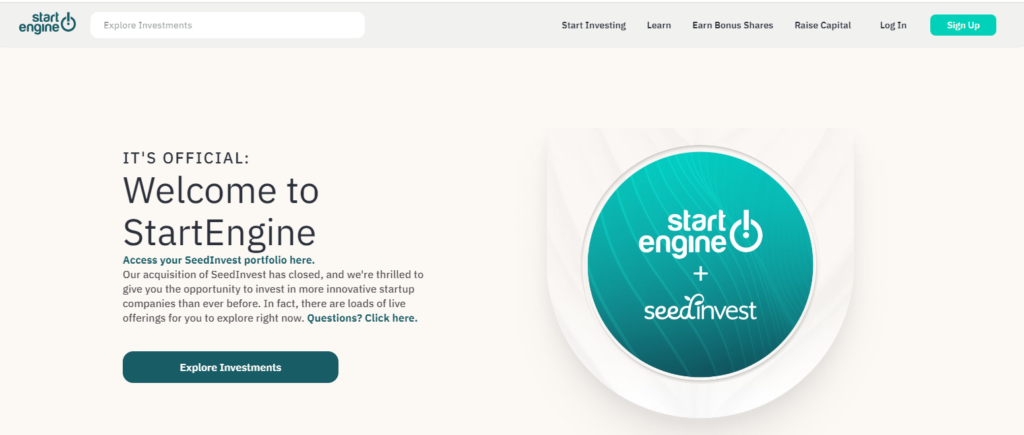
SeedInvest is tailored for startups and entrepreneurs who are seeking equity-based crowdfunding. It is ideal for businesses looking for serious investors and willing to exchange equity for capital and is particularly suited for startups with strong growth potential and a solid business plan.
Fees and Financials: Has a more complex fee structure due to its equity-based nature. They charge a 7.5% placement fee on the total amount raised and a 5% equity fee. Additionally, there are due diligence and escrow fees to consider.
Success Rate: SeedInvest has a rigorous vetting process, resulting in a higher quality of startups on the platform. While this means a lower acceptance rate, it also translates to a higher success rate for campaigns that do get listed.
Support and Resources: It offers significant support in terms of legal and investment documentation, making it easier for startups to navigate the complex world of equity crowdfunding.
Pros: Good network of serious investors and a high credibility.
Cons: The rigorous vetting process and higher fees can be a barrier for some startups.
4. GoFundMe

GoFundMe is widely recognized for personal and charitable fundraising, but it’s also a viable option for startups focused on community and social impact projects. It’s best suited for ventures that have a strong story and can connect with people on a personal level.
Fees and Financials: No platform fee for organizers but there are standard transaction fees (around 2.9% + $0.30 per donation).
Success Rate: Success rates on GoFundMe can vary greatly and are heavily dependent on the campaign’s ability to connect with the audience emotionally and the strength of its social media outreach.
Support and Resources: The platform offers a user-friendly interface and helpful resources for campaign setup and promotion, although it lacks the structured support system of more startup-focused crowdfunding platforms.
Pros: No platform fee.
Cons: Its general association with personal and charitable causes might not align with more commercial startup ventures.
5. Crowdcube
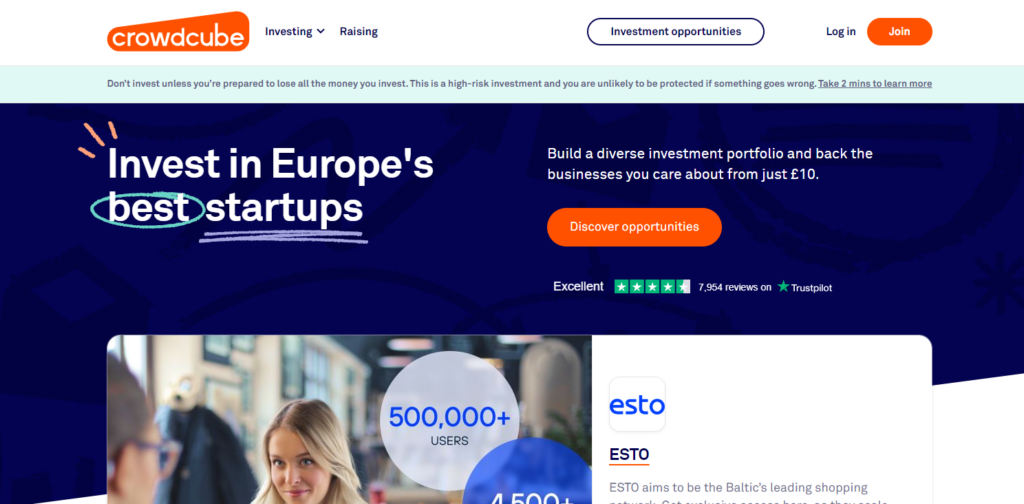
Crowdcube is a leading player in the equity crowdfunding space, primarily targeting startups and early-stage businesses. It’s an excellent platform for entrepreneurs looking to engage with a community of investors and raise significant capital.
Fees and Financials: Charges a success fee of 7% on the funds raised, along with a completion fee and payment processing fees. These costs should be factored into the fundraising targets.
Success Rate: Crowdcube boasts a good success rate, partly due to its engaged community of investors and the support it offers to campaign creators.
Support and Resources: The platform provides extensive support in terms of campaign planning, legal compliance, and investor relations, making it a comprehensive choice for startups.
Pros: Has a high active investor community and can raise huge amounts of capital.
Cons: The fees and the focus on equity crowdfunding might not suit all types of startups.
6. Patreon

Patreon is unique in the crowdfunding world, catering to creators and startups that produce regular content or services. It’s ideal for ventures that can offer ongoing value to their supporters, such as content creators, artists, and tech developers with continuous projects.
Fees and Financials: Fee ranges from 5% to 12%, depending on the plan, plus payment processing fees.
Success Rate: Success on Patreon is more about building a long-term subscriber base than a one-off funding goal, making traditional success rate metrics less applicable.
Support and Resources: The platform offers excellent support with a focus on building and maintaining a subscriber community, including tools for content delivery and subscriber engagement.
Pros: Perfect for continuous funding and building a loyal fan base.
Cons: it requires regular content creation and may not suit startups looking for a single, substantial round of funding.
7. Fundable
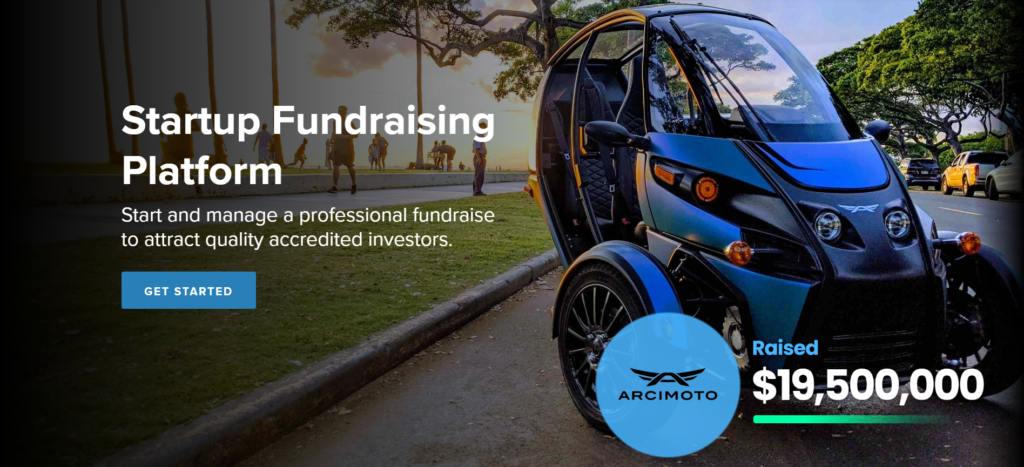
Fundable caters to a broad spectrum of businesses, from tech startups to small local ventures. It offers both reward-based and equity crowdfunding options, making it versatile for different funding needs and business stages.
Fees and Financials: charges a flat monthly fee of $179 for using its platform, which is unique compared to the percentage-based fees of most other platforms. There are no success fees, but payment processing fees still apply.
Success Rate: The success rate is not publicly disclosed, but the platform’s model allows for a diverse range of businesses to launch campaigns, potentially increasing the likelihood of success.
Support and Resources: provides personalized support, including assistance with campaign strategy and promotion, which can be invaluable for startups navigating their first crowdfunding campaign.
Pros: The monthly fee model can be cost-effective for longer campaigns, and the platform is flexible.
Cons: The upfront cost deters some startups, especially those looking for short-term campaigns.
8. StartEngine
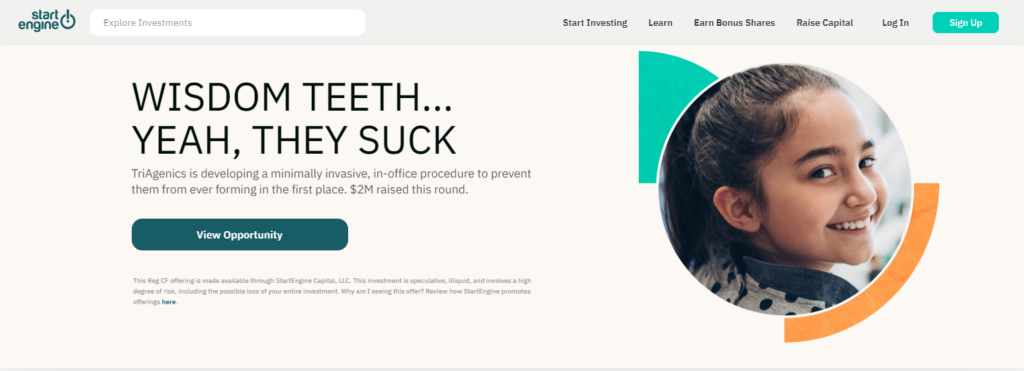
StartEngine is geared towards startups and entrepreneurs looking for equity crowdfunding. It’s an excellent platform for businesses aiming for rapid growth and seeking to connect with a large network of investors.
Fees and Financials: charges a 7% fee on the total funds raised, a $10,000 setup fee for Regulation A+ offerings, and additional marketing and legal fees.
Success Rate: The platform has a strong track record, with numerous successful funding rounds, particularly for tech and innovative startups.
Support and Resources: StartEngine offers comprehensive support, including legal and marketing assistance, making it a robust platform for startups serious about equity crowdfunding.
Pros: The platform’s extensive network of investors and full-service support.
Cons: The higher fees and focus on equity crowdfunding might not be suitable for all startups.
9. CircleUp
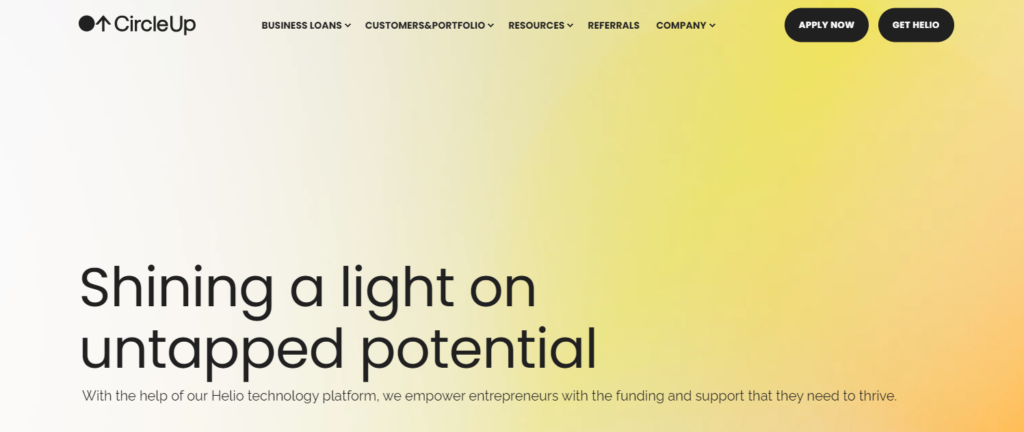
CircleUp is primarily focused on early-stage consumer brands, particularly in the retail and consumer goods sectors. It’s ideal for startups with tangible products and a consumer focus.
Fees and Financials: charges a commission on the capital raised, typically around 5%, along with due diligence fees. The exact fee structure can vary depending on the specifics of the campaign.
Success Rate: CircleUp has a reputation for high-quality campaigns, which translates to a relatively high success rate, especially for consumer brands with strong market potential.
Support and Resources: The platform offers access to a network of retail and consumer goods experts, along with tools and resources tailored to consumer brand development.
Pros: Focus on consumer brands and its network of experts.
Cons: The platform’s niche focus means it might not be suitable for startups outside the consumer goods sector.
10. WeFunder

WeFunder supports a wide array of startups, from tech to social enterprises. It offers both debt and equity crowdfunding options, making it a versatile choice for various types of businesses.
Fees and Financials: charges a 7% fee on the total amount raised for successful campaigns, plus a 2% fee for investors in the form of stock, and payment processing fees.
Success Rate: WeFunder boasts a good success rate, thanks to its diverse range of investment opportunities and a large community of investors.
Support and Resources: The platform provides comprehensive support, including legal and campaign strategy assistance, which is particularly beneficial for startups new to crowdfunding.
Pros: Diverse range of funding options and large investor base.
Cons: the fee structure can be complex, and the equity-based model may not be ideal for all startups.
11. Republic
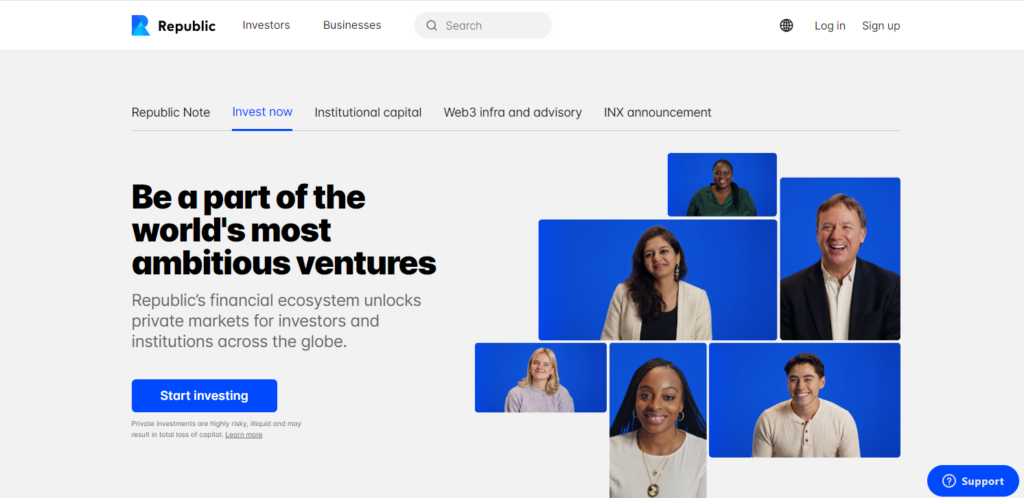
Republic is known for its diverse range of investment opportunities, catering to startups across various sectors. It’s particularly appealing for businesses looking to engage with a broad investor base and those focusing on innovation and technology.
Fees and Financials: charges a 6% cash fee and a 2% equity fee on the total amount raised.
Success Rate: The platform has a strong track record of successful campaigns, attributed to its rigorous vetting process and engaged community of investors.
Support and Resources: Republic offers extensive resources for campaign creators, including legal compliance, marketing strategy, and a comprehensive knowledge base.
Pros: broad investor base and focus on innovative startup.
Cons: The equity part of the fee structure means giving up a portion of ownership, which might not be preferable for all entrepreneurs.
In conclusion, as we embrace the advancements in 2024, crowdfunding is evolving, increasingly integrating with digital technologies like AI and data analytics. This evolution is poised to revolutionize how startups connect with investors and backers, making the process more efficient and aligned with each venture’s specific needs. The right platform can elevate your startup, turning your entrepreneurial dreams into reality.
Need Resources & Updates to Help Shape Your Startup Journey?
At Building Startups, we understand the critical role of making informed choices in this transformative journey. Our mission is to guide and support startups like yours through these dynamic times. Our newsletter curated with insights and expertise from seasoned entrepreneur Ajay Yadav, founder of Roomi and co-founder of Simplified, offers a wealth of knowledge.
Ajay’s experience as an investor in successful ventures like Coffee Meets Bagel, Doorvest, and Squire equips us with the unique ability to provide valuable tools and resources tailored to the startup ecosystem.
By subscribing to the Building Startups Newsletter, you gain access to actionable advice and cutting-edge strategies. We aim to empower rising startups, providing you with the knowledge and tools to build a resilient and enduring business.



